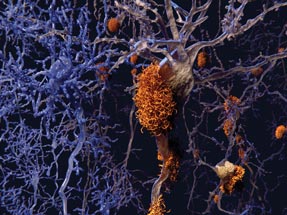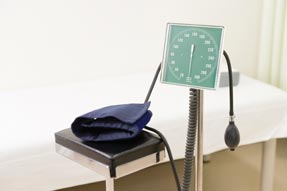Managing Alzheimer's disease when options are limited
Primary care physicians can expect to diagnose an increasing number of patients with Alzheimer's disease as the U.S. population ages. While clinicians have been more successful in diagnosing the disease early, effective treatments or prevention options are more scarce.
Primary care physicians can expect to diagnose an increasing number of patients with Alzheimer's disease as the U.S. population ages. However, available treatments for symptoms of cognitive decline, growing anxiety, sleep disturbances, mood fluctuations, agitation, and progressive loss of quality of life are limited.
Only 4 drugs are now approved by the FDA for treatment of the symptoms of Alzheimer's, and none prevent or curtail its progression. Donepezil was approved in 1996, rivastigmine in 1998, galantamine in 2001, and memantine in 2003. No new agents have been approved since 2003, except for a combination of donepezil and memantine.

From 2002 to 2014, 413 trials were conducted with potential agents for Alzheimer's. Most of the research focused on agents to improve cognition, on disease-modifying small molecules, or immunotherapies. A report on the drug pipeline (413 trials tested 244 unique compounds) published in Alzheimer's Research & Therapy in 2014 found that 72% of the agents failed in phase 1, 92% failed in phase 2 and 98% failed in phase 3. Failures were due to lack of difference from placebo or unacceptable toxicity.
“We have been more successful in diagnosing the disease early, but not in providing effective treatments or prevention,” said Gad A. Marshall, MD, assistant professor of neurology at Harvard Medical School and associate director of clinical trials at the Center for Alzheimer Research and Treatment at Brigham and Women's Hospital in Boston.
Modest benefit
Dr. Marshall explained that all of the approved drugs have “a modest benefit at best, with mild improvement on average in cognitive function and daily functioning for 6 to 12 months, and then they start losing their effect. None of these drugs have any disease-modifying effect whatsoever.”
Among the 4 approved drugs, donepezil, rivastigmine, and galantamine are cholinesterase inhibitors and are indicated for mild to moderate dementia; donepezil is also approved for severe dementia. The cholinesterase inhibitors may help delay symptoms from becoming worse for a limited time, and they may help control some behavioral symptoms, according to a report from the National Institute on Aging published in June 2015. Memantine, a NMDA (N-methyl D-aspartate) antagonist, is in a class of its own and can be used for moderate to severe dementia. The combination therapy donepezil and memantine is also intended for moderate to severe dementia.
According to Liana Apostolova, MD, the Barbara and Peer Baekgaard Professor in Alzheimer's Disease Research at Indiana University School of Medicine in Indianapolis, cholinesterase inhibitors should be the first-line treatment prescribed by primary care physicians. The agents can improve cognition to a modest degree and, for many patients, help address mild symptoms of anxiety, irritability, and agitation. Memantine can also be tried. For more pronounced symptoms and behavioral concerns, the newer generation of antipsychotics should be the next therapeutic option to consider, she said.
Dr. Marshall noted that although few clinical trials have shown that the drugs offer benefit beyond a year, most physicians prescribe them long term because there are no alternatives. Cholinesterase inhibitors are generally well tolerated, with some side effects possible, including gastrointestinal upset, headaches, and vivid dreams. Switching between cholinesterase inhibitors is possible if side effects are concerning, but there is no known benefit to trying 1 medication after another. Also, none of the cholinesterase inhibitors have been tested in a head-to-head comparison, and all had similar efficacy in clinical trials when compared with placebo, Dr. Marshall said.
“There is a mild neuropsychiatric benefit to continue these medications in late-stage disease because they may help with agitation and a little bit of anxiety,” said Garrett Riggs, MD, a behavioral neurologist at Banner Alzheimer's Institute in Phoenix. “That may be a good enough reason to continue with the treatment, even if the patient cognitively is at the end of their disease course. You can almost say that given the treatments we have now, most of what we do is palliative.”
Managing behavioral symptoms
For some patients, the drugs approved for Alzheimer's disease may not effectively control other symptoms, such as sleep disturbances, anxiety, depression, and agitation. At that point, internists can provide education to families and caregivers about nonpharmacologic treatment.
“There are multiple studies showing that what makes the most difference in managing behavioral symptoms is not the medication but behavioral management and nonmedical management,” Dr. Apostolova said. Caregivers can learn how to avoid confronting or arguing with the patient and instead how to listen, reassure, and redirect, she noted.
Dr. Marshall said that family members or hired caregivers can often most effectively help patients modify their behavior by paying close attention to what is bothering them, especially when they can't express it.
Sleep problems can sometimes be resolved by limiting daytime naps, ensuring a quiet and darkened bedroom environment conducive to sleep, and following a bedtime routine. When needed, melatonin or trazadone can be safely prescribed for sleep disorders, Dr. Apostolova advised. Trazadone should be avoided during the daytime hours, although on occasion it can be used to calm down an agitated patient, she said.
No clinical trials have clearly shown that any supplements or vitamins, other than high doses of vitamin E, have potential efficacy for improvement in cognition or daily functioning in individuals who already have dementia, Dr. Marshall said. Two studies have shown some modest improvements in daily functioning with vitamin E in patients diagnosed with either mild to moderate dementia or moderate to severe dementia. Statins, various diabetes medications, and anti-inflammatories have been shown to be ineffective for Alzheimer's disease or its symptoms. Few studies of complementary and alternative alternatives have been conducted, Dr. Riggs said.
Lifestyle modification, including physical exercise and a “heart-healthy” or Mediterranean diet, can be somewhat helpful, according to Dr. Marshall. There is little evidence, however, that cognitive stimulating exercises are beneficial, beyond helping patients learn how to do a specific mental exercise better. “The exercises don't translate into daily functioning,” he said.
Families and caregivers should also be reminded to make sure patients are taking their medications on schedule, Dr. Riggs advised. “Sometimes patients have gotten to the point where they need supervision to make sure they are taking the right medications on the right day, even if they use a pillbox,” he said.
Proceed with caution
Several medications should be avoided or used with care in patients with Alzheimer's, the experts said. Some studies have indicated that prolonged use of antipsychotics can increase the risk of arrhythmia, as well as Parkinsonian symptoms, Dr. Marshall noted. (These side effects can occur in all types of patients, including those with Alzheimer's.) In addition, a study published in Lancet Neurology in 2009 found increased mortality risk in patients with Alzheimer's who used antipsychotic medications for longer than a year.
Barbiturates and benzodiazepines should generally not be prescribed in Alzheimer's patients. According to Dr. Apostolova, these medications can worsen memory performance, or cause sedation, impaired reaction time, and confusion, so they might add to the symptoms the patient with Alzheimer's is already experiencing.
Elderly women (and men) who are being treated with an anticholinergic medication for incontinence may continue to receive that treatment, but “use caution when prescribing,” Dr. Apostolova said. These drugs have the opposite effect of the cholinesterase inhibitors, which are the main drugs used to treat Alzheimer's. Dr. Apostolova recommends using the anticholinergic meds very carefully to control incontinence if necessary. “With anticholinergics, one has to proceed more carefully.”
Although primary care physicians can manage some patients with approved medications and behavior modification strategies, when behavior modification isn't working, and when drugs that a primary care physician is comfortable prescribing and monitoring are not working, referral to a geriatric psychiatrist or a behavioral neurologist who specializes in Alzheimer's disease is warranted.
Selective serotonin reuptake inhibitors (SSRIs), often prescribed for depression, can also alleviate irritability and mild agitation. The patient with more severe depression or mood disturbances should be referred to a subspecialist because geriatric patients respond differently to these drugs than younger patients do, Dr. Marshall advised.
“You want someone who has facility in using these medications and experience with them, with time to go back and forth to titrate them,” he said. Disturbing behaviors, such as hallucinations, delusions, and severe agitation, may respond to an antipsychotic agent, which should also be prescribed and managed by a geriatric psychiatrist. Visual hallucinations that do not result in agitation probably do not need to be treated, he said, but hallucinations or paranoid delusions that lead to violence should be treated for the safety of the patient and those around the patient.
Promising research
Several promising phase 3 trials focusing on the amyloid process in presymptomatic patients could yield new therapies, Dr. Apostolova said. Accumulation of beta-amyloid peptide in the brain is believed to be a leading cause of Alzheimer's disease.
The A4 (Anti-Amyloid Treatment in Asymptomatic Alzheimer's) Study is enrolling amyloid-positive, cognitively normal people who are being treated with an antiamyloid antibody to see if it can slow the memory loss associated with the buildup of amyloid. The DIAN (Dominantly Inherited Alzheimer Network) trial is enrolling adult children of a parent with a mutation of a gene known to cause Alzheimer's and is testing several agents, including investigational monoclonal antibodies that target amyloid beta production. Another trial is investigating the effects of antiamyloid antibody on slowing down disease progression in people with 2 copies of the apolipoprotein E gene, the major genetic risk factor for the common late-onset form of Alzheimer's disease. Results from these trials are not expected for at least 3 to 4 years.
“These trials are all exciting and may result in new therapeutic modalities,” Dr. Apostolova said. “Given the astounding number of failures we have seen over the past few decades, I think we have to go in early [in the course of the disease], and that is what we are doing with these trials.”



